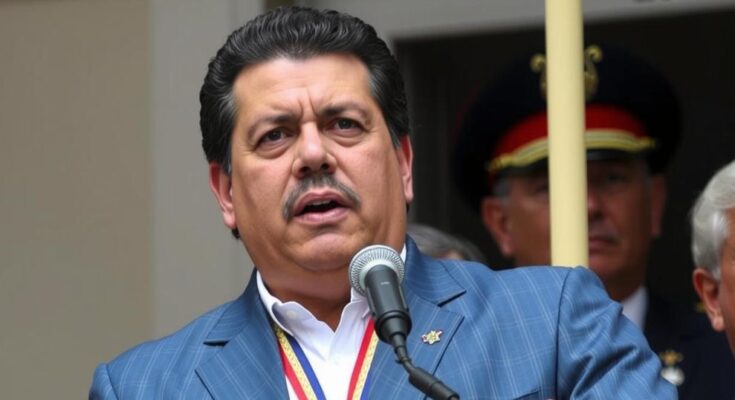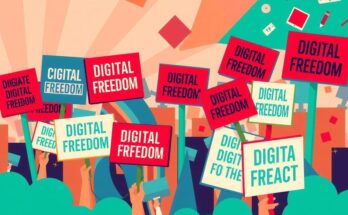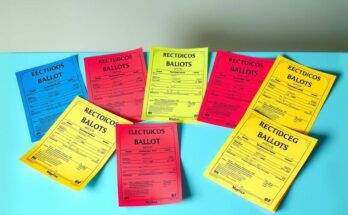Nicolás Maduro was inaugurated for a third term as president of Venezuela, despite allegations of election fraud and significant opposition protests. The event, marked by heavy security and rhetoric against foreign powers, has drawn international condemnation, with the EU and U.S. imposing sanctions on Venezuelan officials. The ongoing political turmoil highlights the deepening crisis in Venezuela as opposition figures call for accountability and transparency in governance.
CARACAS, Venezuela — On Friday, Venezuelan President Nicolás Maduro was inaugurated for a third six-year term, extending his increasingly authoritarian governance until 2031. This event occurred amidst significant discontent and credible allegations indicating that his opponent, Edmundo González, likely won the recent elections. The inauguration took place in a heavily secured legislative palace, while crowds of pro-Maduro supporters gathered outside as Maduro delivered a combative address, asserting his commitment to national sovereignty and dismissing accusations from his adversaries as attempts to sway public sentiment against him.
In his speech, Maduro condemned the opposition’s actions, characterizing them as attempts to instigate global conflict. He specifically criticized external interference from the United States and proclaimed, “Today more than ever I feel the weight of commitment… I have not been made president by the government of the United States, nor by the pro-imperialist governments of Latin America.” This rhetoric accompanies ongoing tensions as the opposition, having collected and shared information suggesting González won, calls for accountability and transparency regarding the electoral process.
The European Union responded to the situation by imposing sanctions on 15 high-ranking Venezuelan officials involved in the election, which they deemed detrimental to the country’s democracy. Concurrently, the U.S. Treasury Department introduced its own sanctions targeting Maduro administration figures. Amidst rising unrest, opposition leader María Corina Machado was allegedly detained and coerced into appearing in videos, further exacerbating calls for her release and highlighting the government’s crackdown on dissent.
Various international leaders have condemned Maduro’s regime for its oppression of opposition voices and have expressed solidarity with the Venezuelan opposition. The controversial election outcome, marked by allegations of fraud, has led to widespread protests, with numerous arrests made and violent clashes reported.
On the day of the inauguration, Maduro’s supporters celebrated, while critics continued to rally for a restoration of democracy, emphasizing the need for a more transparent electoral process. The international community remains alert to the developments in Venezuela as Maduro consolidates his power amid considerable opposition and societal unrest.
Venezuela has been facing a severe political crisis characterized by allegations of electoral fraud, human rights abuses, and economic collapse. Nicolás Maduro, who took office amid contentious circumstances, has faced long-standing challenges from opposition groups that argue his presidency lacks legitimacy due to undemocratic electoral practices. The most recent election, held on July 28, has been particularly contentious; opposition claims indicate that the results may have been manipulated in favor of Maduro. The crisis has drawn international scrutiny, with countries and organizations questioning the integrity of Venezuela’s electoral processes and implementing sanctions against its leaders in response to ongoing repression.
The swearing-in of Nicolás Maduro for a third term represents a continuation of his contentious rule amidst robust opposition claims of electoral fraud and widespread protests. The international community’s responses, particularly sanctions from the European Union and U.S., underscore the severity of the situation. The resistance from opposition leaders like Edmundo González and María Corina Machado highlights the ongoing struggle for democracy in Venezuela, with calls for accountability and transparency gaining momentum. As the political landscape evolves, it remains crucial for the global community to monitor the human rights situation and endorse efforts for legitimate democratic processes in the country.
Original Source: www.newsday.com




